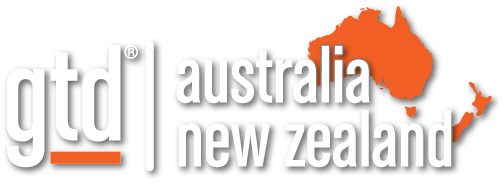Tell us a little about yourself
My name is Jared Caron and I live in Nashua, New Hampshire.

What do you do for work?
I am a Registered Nurse. My current role is as a Nurse Educator for the 2nd largest primary care network in the state. We have over 70 medical practices spanning numerous specialties. I work with a team of 5 and we are primarily responsible for training and education of Nurses and Medical assistants, as well as working with nursing students. Though of course I wear many hats, as most do. The role includes quality assurance functions such as following up on errors and complaints, and is also a leadership role. I work closely with my boss, our Director of Nursing, to craft policies, procedures, and strategic vision for enhancing nursing services, promoting professionalism, and patient safety. Oh, and I also do some patient care too!
How long have you been practicing GTD, how did you hear about it, which tools do you use, etc.?
I had heard about GTD a long time ago, not sure exactly when, but never really paid much attention to it. I was a Covey fan, and honestly the title of the book turned me off. I was thinking, “it’s not about getting more things done, it’s about getting the right things done!!!” However about 2 years ago my brother, who is an electrician, was starting a business and I was getting ready to take on my current role. I saw the book at his house and we started talking about it. He told me about David’s description of thoughts as “open loops” in your head and how that really made sense to him. So I picked up the book from the library and started reading. Meanwhile I was waiting for a final decision on this job, which was actually a promotion. The role was a little intimidating to me because I had seen how buried my boss was in email, meetings, and such. It was moving out of direct patient care into a knowledge work role and I had no real clue how to manage that kind of workload. I devoured the book (on vacation no less!) and immediately began reading it a second time, meanwhile starting my new role. It was perfect timing. I went through the 2 day setup process in my first month, purged all my electronic files and set up new filing systems while my “residue” was still pretty low. That set the tone, and I’ve fine-tuned ever since. At first I just did it at work, but it has since crept into the rest of my life with pleasant results.
Currently I use outlook at work for email and action/project lists. I recently set up my professional higher horizons in OneNote which I’m still deciding if I like. At home I also use Microsoft Outlook to do for action and project lists, and I use Evernote for reference, project support, and higher horizon material. The Microsoft To-Do app is surprisingly great for GTD and keeps my personal lists available in my pocket or on my tablet and seems to work great. I’m not afraid of paper either. It’s hands down the best capture tool! I primarily carry around a notetaker wallet and I keep a padfolio which serves as a capture tool/inbox and some plastic folders in my briefcase which keep action support, etc. since I do a lot of moving around site-to-site at work its kind of a mobile office. Despite my millennial predisposition toward digital I even have a physical tickler file in my office which I absolutely love.
How has GTD made a difference in your work and life?
A significant part of this role is responsiveness to requests, but another component is strategic planning, vision, and program development. So a big goal of mine was to avoid being totally overwhelmed with email, phone calls, and meetings. GTD has been the life raft that has kept me afloat despite the unstable world of healthcare (especially right now!). Embracing GTD for personal stuff was a next-level game changer to be honest. I hesitated to implement this very business-like methodology in my home life, but I’ve found it to be extremely effective for handling anxiety, emotional discomfort, and just keeping the wheels turning with all the mundane stuff of life while also keeping focused on worthy outcomes. My alter ego is a minister and I spend significant amount of time in a community ministry as well as with the youth in my congregation. Applying outcome and next action thinking is so useful in these “softer” areas of life to turn them into concrete, actionable steps.
What areas of GTD are you doing really well (or at least better than you used to)?
I have seen my capture habit really develop as well as truly digging into the next action thinking and phrasing in the lists; and more recently I’m learning the true power of the two-minute rule.
Learning to capture on the fly is difficult but so helpful. Having something portable like a note-taker wallet is useful too. I think using paper is really the only place to start as it leaves a physical reminder in your life which you then need to clarify. Helps you separate those two phases instead of capturing directly into your lists which is a black hole I’ve been down a couple times.
With next action thinking and phrasing, I found this to be one of the hardest things to learn. I actually found a key to this was simply leaning really hard into my lists. I basically tried to do nothing but what was on my lists. It’s a really good way to figure out what you’re avoiding, which can help figure out why you’re resisting that. Often its unfinished thinking: It’s not really the very next step or you were too vague on your list. Which also helped me develop the 2 minute rule.
I have a terrible sense of time. Recently I’m discovering that what I think is a 2-minute action is typically a 10 to 30 second action. I have been using a 2-minute timer on my desk when I process my email and if I’m on the fence of whether something is 2 minutes or not, I start the timer, dive in and see how far I can get. I’ve been amazed at how long 2 minutes actually is. You can get a lot of stuff churned out through 2 minute actions. This has helped me unpack a whole category of resistance on my lists where I have skipped the 2 minute rule and placed a whole bunch of those on lists, promptly to be avoided until my next Weekly Review.
What areas of GTD would you like to get even better at doing?
I’m currently working on being more disciplined during my Weekly Review. I’m pretty religious about doing it, but I have a hard time not doing work while I am in the process. So I have a goal of getting it under an hour consistently. A real help with this is getting a timer and timing the steps. Also, I just benefitted from a coaching consult and learned some great insights into how to simplify my lists and connect projects and areas of focus more effectively.
What is one piece of advice you would give to someone just starting out with GTD?
Listen to David. Really. Do the steps as outlined in the book. For example, I scoffed at the idea of a physical tickler file and a year later I ended up making one and loving it. Try it out “as-advertised” and tweak from there. Also don’t stop after reading the book once. Keep fine tuning. And if you’ve been trying to implement GTD for 6 months to a year and still don’t feel like it’s on cruise control, join GTD Connect and dive deep into the webinars. It’s the cheapest way to access the expertise of the coaches. My GTD practice grew exponentially after joining GTD Connect and not only do I understand the methods better, I have learned how to fine tune the principles in the book to fit my unique circumstances, which makes this whole thing more sustainable.



Recent Comments